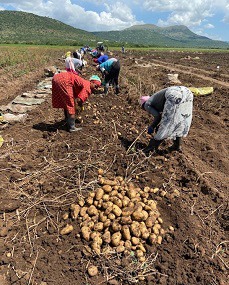 Growing up in the Middelrus community of Mooi River, KwaZulu-Natal, where many worked on the commercial potato and maize (corn) farms belonging to white farmers, farming was not what they intended to do, remark brothers Bheki and Nathi Nene, respectively operational and administrative managers at Sebenzangamandla.
Growing up in the Middelrus community of Mooi River, KwaZulu-Natal, where many worked on the commercial potato and maize (corn) farms belonging to white farmers, farming was not what they intended to do, remark brothers Bheki and Nathi Nene, respectively operational and administrative managers at Sebenzangamandla.
However, in 2007 the South African government purchased the land through a land restitution claim lodged by the community and the land was theirs.
The main challenge holding them back was capital; experience of farming they had, and they had a farm in good working order, including a mechanised potato sorting room and cold storage facilities.
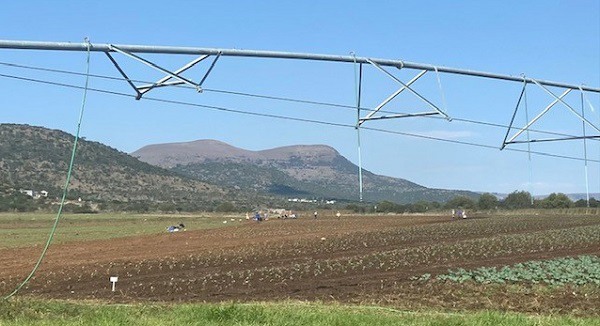 Gugulethu Farm in Mooi River, KwaZulu-Natal (photos supplied by Sebenzangamandla)
Gugulethu Farm in Mooi River, KwaZulu-Natal (photos supplied by Sebenzangamandla)
The community kept activities ticking over, even if only the bare minimum that they could afford, convincing UMATI (the Upper Midlands Agricultural Transformation Initiative) to offer their support and mentorship.
Nathi, who was studying business administration, says: “Agriculture wasn’t my first choice but as the years went by, my interest in the farm grew, so then when I approached our community, when we were still leasing out the land to commercial farmers, we decided we must start doing it on our own.”
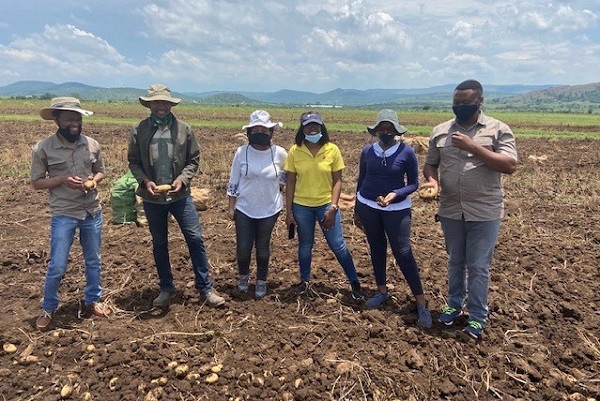
Working with power
The model has morphed over the years, finally settling on a company called Sebenzangamandla (meaning 'working with power') comprised of four directors who are community members, responsible for daily operations and answerable to the community.
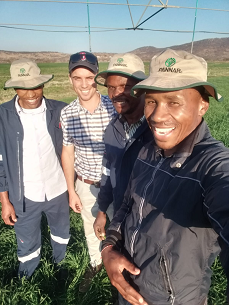 Under this model, the farm strives for financial self-reliance and improved household income among the community.
Under this model, the farm strives for financial self-reliance and improved household income among the community.
Right: Nathi Nene, Zakhele Shezi and Bheki Nene, three of the directors, with a representative from Heineken for whom they grew barley on contract
“When we started, what we needed was startup capital. Some of my colleagues gained experience in vegetable production from the farmers who were leasing the land. It was just startup and operating funding we needed urgently," he says.
"And then UMATI offered to assist, from there, it was like we are taking hold of our own future.”
Sebenzangamandla is assisted with loans for inputs by Kagiso, a financial organisation that supports developing farmers.
Nathi notes that they are in a “deep rural area”, where communities need information in the media on how to gain momentum in running a farm.
'Work your magic!'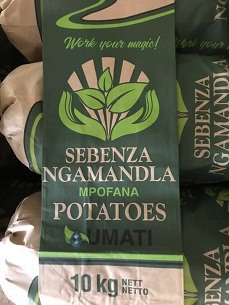 Table potatoes, their main crop, are harvested from November to January and marketed through Delta Market Agents at the Durban municipal market.
Table potatoes, their main crop, are harvested from November to January and marketed through Delta Market Agents at the Durban municipal market.
Right: Sebenzangamandla's potatoes from the Mpofana Municipality in KwaZulu-Natal
Potatoes South Africa have provided them with seed potatoes through a finance model that is phased over four years.
Graham Armstrong, the CEO of the Upper Midlands Agricultural Transformation Initiative, acts as a mentor to Gugulethu Farm. He was appointed by Potatoes South Africa to assist with their potato production.
This year Sebenzangamandla is supplying a substantial portion of winter crops like broccoli, cauliflower, spinach, lettuce and cabbages to AgriKool, a Pietermaritzburg-based farmgate buyer that supplies informal traders and retail in the area.
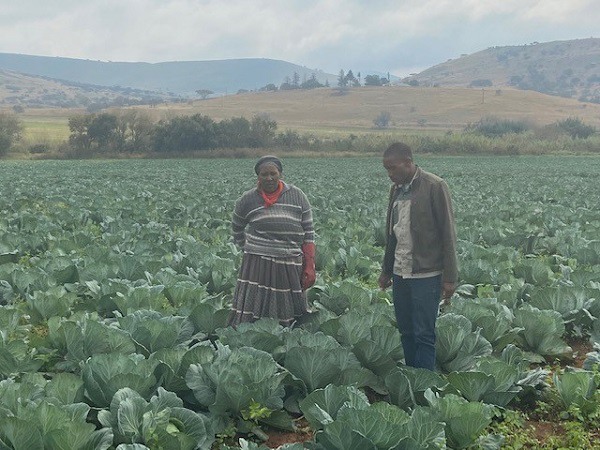
Planning for the next generation
“Our plan for the future is to educate the beneficiaries of this Gugulethu Farm, the young ones, to take them to school to learn about agriculture,” Nathi adds. “We want them to get experience so that we can pass on the farm to them. That is our mission, actually.”
Apart from vegetable production on the arable parts of their farm, they have land for grazing, on which they are planning to expand their animal husbandry as they already have cattle and goats.
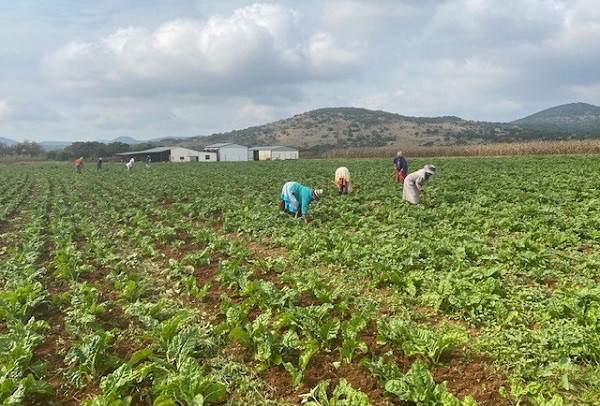
For more information:
Bheki & Nathi Nene
Sebenzangamandla/Gugulethu Farm
Tel: +27 71 494 4846
Email: [email protected]
